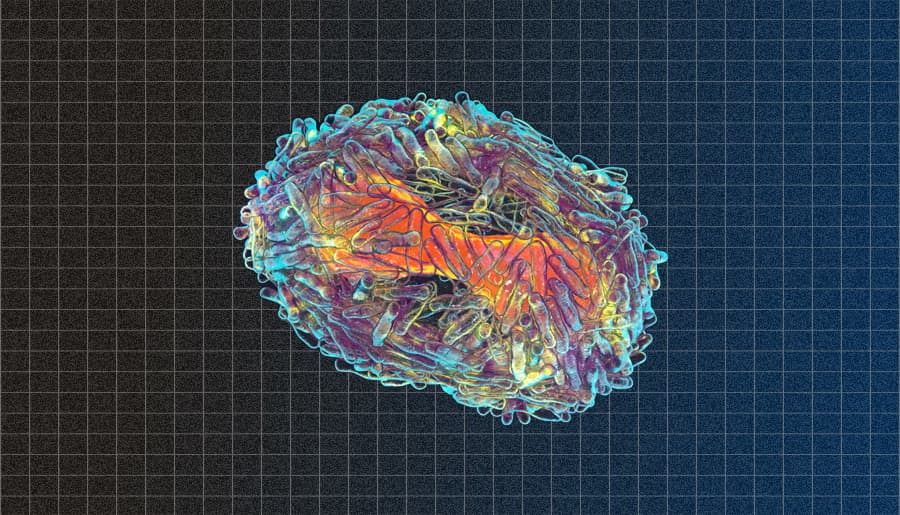With the COVID-19 epidemic drifting back into the foreground of the cultural zeitgeist, it would be nice if the world’s other diseases, illnesses, and viruses took a holiday. But unfortunately, none of them got this memo. On May 18, the American Centers for Disease Control and Prevention (CDC) started to investigate a single case of the monkeypox virus (who’s names is now being updated) that had affected a resident of Massachusetts. Since then, the ABC has confirmed that it has spread into Melbourne and Sydney. On July 11, health authorities detected the first confirmed case of monkeypox in Queensland.
Moreover, on July 21, the WHO determined that this virus has now spread across so many countries that it’s become a Public Health Emergency of International Concern. As Tedros Adhanom Ghebreyesus, the Director-General of WHO stated, “We have an outbreak that’s spread across the world rapidly, through new modes of transmission, about which we understand too little, and which meets the criteria.”
But what exactly is monkeypox? How serious of an illness is it? Well, if you want answers to those questions, then you’ve come to the right place.
What Is Monkeypox?
Monkeypox is a virus that’s from the same family as smallpox, cowpox, and vaccinia. In 1958, it was first recorded infecting two monkeys. It’s worth noting that Scientific America states that monkeys aren’t the main carrier, nor do they typically give it to humans. In 1970, the first case of monkeypox was recorded infecting a child in the Democratic Republic of Congo.
Because this virus doesn’t have all that much to do with monkeys, the WHO is planning on renaming it. Moreover, they also have some other issues with how it’s being labeled. As another piece on The Latch stated, “Given that monkeys are often found in Africa and non-western parts of the world, the WHO is concerned that keeping the name would make people think it’s just an African problem.”
If you want to learn more about the WHO’s reasoning, here’s our top-notch article on this issue: The World Health Organisation Has Set About Renaming ‘Monkeypox’
What Are Monkeypox’s Symptoms?
The CDC states that monkeypox typically starts with you getting swollen lymph nodes, a fever, a headache, achy muscles, chills, and/or being exhausted. Between one and three days after these symptoms pop up, you’ll get a rash that will start on your face and spread to other parts of your body. Monkeypox usually lasts two to four weeks.
Is Monkeypox Deadly?
According to NPR, the version that’s spreading at the moment has a less than a 1% chance of killing you. There is a version in Africa that’s more deadly though, which kills up to 10% of people who get it.
How Can You Catch Monkeypox?
The WHO outlines that monkeypox typically is spread through the small droplets in an infected person’s breath during close contact situations. You can also get it from interacting with an infected person’s open wounds or a recently contaminated object that they interacted with. The Who also noted, “While close physical contact is a well-known risk factor for transmission, it is unclear at this time if monkeypox can be transmitted specifically through sexual transmission routes. Studies are needed to better understand this risk.”
How Do You Treat Monkeypox?
Monkeypox will typically be beaten by your own body, and you should recover without needing much or any medical intervention. Health Direct has stated that you’ll probably get over it with by staying hydrated and taking simple pain meds, like the classic paracetamol. I’d like to recommend resting in bed and enjoying the audiobooks of Deltora Quest, but I’m not a healthcare professional.
Is There a Vaccine for Monkeypox?
Not only is there a vaccine for the monkeypox virus, it’s already in Australia. As the Minister for Health, Mark Butler, explained on August 4, “The Albanese Government has responded early to the monkeypox outbreak, securing supplies of the third-generation vaccine in a time of limited supply and significant global demand.”
He also noted, “This is an important step towards minimising the risk and impact of any further monkeypox outbreaks in Australia.”
These vaccines are new, third-generation, and created by Bavarian Nordic. The first 22,000 doses of them are currently being distributed throughout our communities. The other 428,000 vaccines will be available later on in the year and in 2023.
Get some additional details about the government’s program here: Monkeypox Vaccines Are Coming to Australia
Can You Give Monkeypox to Your Dog?
While it’s currently unknown if humans can give domesticated dogs this virus, there’s some evidence that was published in The Lancet which suggested that this is the case. In France, two men contracted the virus and then slept in the same bed as their greyhound. Later, their dog tested positive.
“Our findings should prompt debate on the need to isolate pets from monkeypox virus-positive individuals,” asserted this research paper. “We call for further investigation on secondary transmissions via pets.”
Even though this study didn’t outright say that domesticated dogs can get this illness from humans, the WHO is taking its findings very seriously. In fact, they are saying that if you get infected, the health advice outlines that you should isolate away from their pets.
According to The Guardian, the organisation’s technical lead for monkeypox, told reporters, “This is the first case reported of human-to-animal transmission.” He then later on said, “We believe it is the first instance of a canine being infected.”
Read more stories from The Latch and subscribe to our email newsletter.







